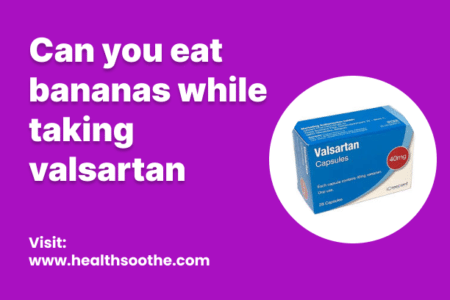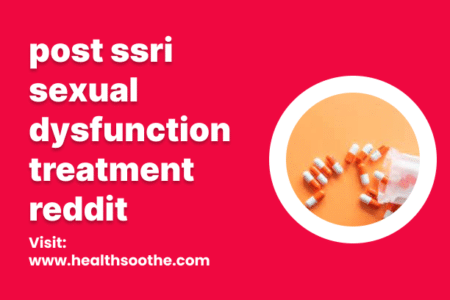In the past, people had to be creative and resourceful. Since there were no antibiotics, pills, or disinfectants yet, they had to rely on herbs to heal. Most of these plants, such as eucalyptus, parts of garlic, and poppy plant, are still used to this day.
With over 80% of all countries estimated to use traditional herbal medicine, it’s no wonder many people are turning to herbal treatments. According to statistics, about one in five adults in America has used some form of herbal product.
But is herbal medicine a viable option for addressing health concerns? Read on to learn more about this treatment.
1. What Are Herbal Medicines?
Herbal medicines have existed since ancient times. They are made from plants or plant extracts and treat various health issues, including pain, inflammation, digestive problems, allergies, and skin conditions. Herbal products, also called ‘botanical medicines’ or ‘phytomedicines,’ are used to treat various conditions, such as depression, anxiety, insomnia, and digestive disorders.
Unlike conventional medicines, herbal medicines are not regulated by the Food and Drug Administration (FDA) and can be purchased without a prescription. Although some have been studied in clinical trials and have been known to be effective for certain ailments, there is limited research on their safety and efficacy. So, you should speak with a healthcare provider before using them.
2. What Are The Types Of Herbal Medicines?
There are different types of herbal medicines available. Here are some of the most common ones you’ll find on the market:
a. Herbal Supplements
On one occasion or another, you may have used herbal supplements. These are products made from natural plant sources, such as herbs, roots, bark, flowers, leaves, and berries. They are typically taken as pills, capsules, powders, or liquid extracts and are an alternative to conventional medicines for treating some ailments and diseases.
The originality of herbal supplements lies in their natural composition. Unlike synthetic drugs, herbal supplements are not artificially created and don’t contain any harsh chemicals. Instead, they are packed with natural compounds that provide health benefits.
They contain active ingredients, such as antioxidants, vitamins, minerals, and fatty acids, which can help support overall health. They can be used to treat a variety of conditions, including digestive issues and skin problems, and can also boost immunity, improve energy levels, and enhance cognitive function.
b. Essential Oils
Another common form of herbal medicine is essential oils. Essential oils are highly concentrated extracts derived from plants, herbs, and flowers. They are used to improve physical, mental, and emotional health. In aromatherapy, essential oils are used to promote relaxation and ease stress.
They are also used as natural remedies for headaches, insomnia, depression, and other ailments. In addition, they can be used topically as massage, bath, and skincare products. Plus, they can be diffused in the air for a calming and uplifting atmosphere.
Normally, you should have essential oils diluted in another substance, such as oil or water, and maintain a concentration level of not more than 3 to 5%—which is equivalent to adding 3 drops of essential oil to 1 teaspoon of water.
Do a patch test to figure out the right dosage for you: Apply a drop of oil to a part of your body like your inner forearm. Then put and keep a bandage on it for a day. If your skin gets irritated, take out the bandage and clean the affected part.
c. Herbal Tea
You probably have come across an advert about herbal tea and the magic it can bring. Or you may have already tried it.
Herbal tea is made from spices, herbs, and other plant materials. Common ingredients used in this type of tea include chamomile, lavender, cinnamon, ginger, peppermint, rose hips, and hibiscus. Depending on the type of tea, other herbs, such as nettle, dandelion, and lemon balm, may be added for additional flavor.
Herbal tea offers many health benefits, such as aiding digestion, relieving stress, reducing inflammation, and improving sleep. It can also help boost energy levels and reduce the risk of certain diseases, such as cancer and diabetes. Some people often use herbal tea to help with weight loss, one of the reasons it has recently gained attention.
Here’s a more detailed look at some of the herbal teas:
I) Green tea
It’s one of the most common herbal teas, with antioxidants and caffeine, making it an excellent choice for boosting energy and mental clarity.
ii) Ginger tea
It’s known for its anti-inflammatory and antioxidant properties, which are ideal for reducing inflammation and resolving digestive issues.
iii) Peppermint tea
This herbal tea helps relieve stomachaches and reduce stress, as well as aids digestion.
iv) Chamomile tea
It’s known for its calming and relaxing properties, a suitable drink for those dealing with insomnia or anxiety.
v) Hibiscus tea
Rich in antioxidants, vitamins, and minerals, it helps strengthen the immune system.
vi) Turmeric tea
Like ginger tea, it boasts anti-inflammatory and antioxidant properties.
d. Herbal Tinctures
Lastly, herbal tinctures are an extract made from herbs and alcohol. They are typically used as an alternative to dietary supplements for people who want to avoid taking pills or capsules. They usually contain one or more herbs, such as Echinacea, ginkgo biloba, ginger, and ashwagandha.
The herbs are soaked in a liquid, usually alcohol, for a while to extract their active compounds. Hence, a concentrated solution can be taken in small doses. The tinctures can be taken orally, topically, or in food or drinks. They commonly treat ailments, including stress, fatigue, headaches, skin issues, and digestive problems.
3. What Are The Benefits Of Herbal Medicines?
Aside from helping your body heal, herbal medicines offer the following benefits:
a. Management of side effects caused by conventional medicine
One of the key benefits of herbal medicines is that they can be used to manage the side effects of conventional medicine, such as nausea, headaches, or fatigue. In particular, ginger is known to help relieve nausea, while chamomile can help reduce stress and anxiety.
Additionally, some herbs can help boost the immune system and reduce inflammation. For instance, when undergoing chemotherapy, many people experience fatigue and nausea. Herbs, such as ginseng and ashwagandha, can aid in reducing these symptoms and improve overall well-being.
On top of that, they can help reduce the risk of drug interactions, as many herbs have natural compounds that have different effects from conventional drugs. As mentioned earlier, turmeric contains anti-inflammatory properties, which can help minimize the risk of drug interactions when taking other medications.
b. Prevention of certain conditions
Another way herbal medicines can be used is to prevent certain conditions by strengthening the immune system. They are typically natural, containing many vitamins, minerals, and antioxidants to boost the body’s defense against illnesses. Examples of herbs that can boost the immune system include Echinacea, astragalus, and ginseng.
These herbs are known to increase the production of white blood cells, which helps fight off infection. Furthermore, herbs like eucalyptus and peppermint have antiviral and antifungal properties to prevent colds and other illnesses. Other herbs, such as garlic and ginger, have anti-inflammatory properties that can help reduce the severity of symptoms and lower the risk of complications.
c. Cost-effectiveness
When it comes to receiving treatment, cost is always an important factor. Unlike many prescription medications, herbal medicines are generally less expensive and are made from natural sources.
Moreover, they are generally safe to use, have fewer side effects than traditional medicine, and are often used with other medications or treatments to provide a more holistic approach.
d. Accessibility
Another notable benefit of herbal medicine is its accessibility. Herbs can be grown in a garden, making them a practical option for those who can’t afford expensive prescription medications. Many of them are familiar components of household foods too, so you don’t have to visit special stores or markets to find them.
e. Holistic Health
Herbal medicine is holistic in nature, meaning that it considers the whole person—body, mind, and spirit. It also seeks to treat the underlying cause of illness rather than just the symptoms.
4. Are There Health Risks?
While herbal medicine can offer health benefits, it may cause negative effects:
a. Interactions with prescription drugs
Herbal medications can interact with prescription drugs, leading to serious side effects. St. John’s Wort can reduce the efficacy of birth control pills, while gingko biloba can interact with blood thinners.
b. Quality and purity
Because many herbal medications are unregulated by the FDA and may lack the ingredients listed on the label, you should purchase herbal medicines from reputable sources that guarantee the highest quality and purity.
c. Contamination
Herbal medications can be contaminated with heavy metals, pesticides, and other toxins. Research the source of herbal medicines to ensure they are free from contamination.
d. Allergic reactions
Herbal medicines are derived from plants and can contain various active ingredients, some of which could cause allergic reactions in some people. Allergic reactions to herbs can range from mild to severe: skin reactions, rashes, hives, difficulty breathing, and in some cases, anaphylaxis.
e. Coma or loss of muscle control
Essential oils, in particular, may produce adverse effects. So, you need to be careful not to ingest even a small amount of essential oil. Taking a small amount of tree oil, for example, can result in coma and loss of muscle control.
f. Hormonal imbalance
Applying lavender oil to your skin may affect the endocrine system. There was a case involving prepubescent boys that developed gynecomastia (swelling of breast tissue). But after discontinuing the use of the essential oil, the condition cleared.
Conclusion
An effective and affordable approach, herbal medicine has been used to treat various ailments for centuries. However, it poses some potential risks. Consult a healthcare provider first so that they can help you determine if herbal medicines are the right option for you.





